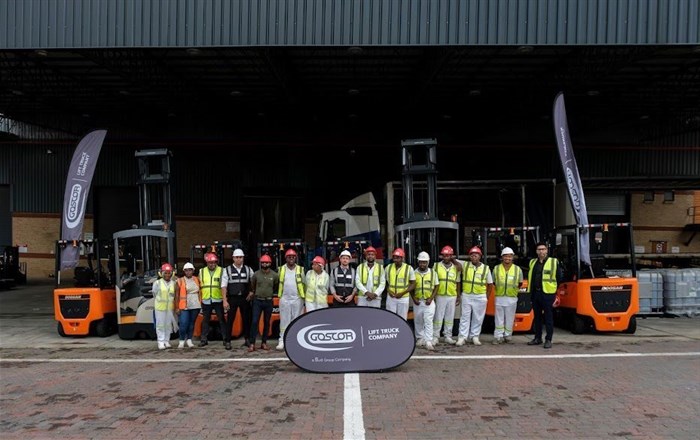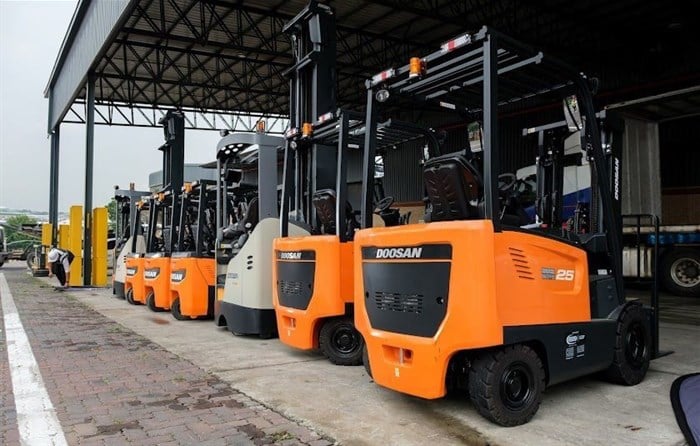
Top stories






More news

















Logistics & Transport
Uganda plans new rail link to Tanzania for mineral export boost








To maintain efficient materials handling operations at its dog food production facility and raw materials storage warehousing, Royal Canin South Africa replaces its materials handling equipment fleet every 60 months, confirms Phaphama Malashe, Indirects, Royal Canin South Africa.
This time, the company has decided to upgrade its fleet with a mixture of Doosan and Crown forklifts from GLTC. The units in question include Crown ESR5260-2.0 electric reach trucks and Crown SHR5520-1.35 pallet stackers, as well as Doosan B25S-7 and Doosan B18T-7 electric forklifts. With the addition of these units, the company now runs a total of 12 forklifts in its fleet.
"Royal Canin has graciously decided to put its trust in Goscor Lift Trucks with another five-year rental term, upgrading all its electric machinery to now include lithium-on batteries and fast chargers to improve efficiency and lower maintenance costs," explains Dan van der Vaart, regional sales manager at GLTC.

Electric forklifts, explains Malashe, are best suited to Royal Canin’s business. When working around food, hygiene is of critical significance, from the way products are handled, to the way they are stored. Malashe says electric materials handling solutions, particularly lithium-ion powered machines, are more environmentally friendly than diesel or LP gas alternatives and produce less pollution which is ideal for environments involving food.
Muhammad Alli, supply chain development lead at Royal Canin, says the main driver behind the change was the need to drive efficiencies, in terms of both the investment for the machines, as well as sustainability. The need to drive sustainability – reduction of our carbon footprint in all our dealings – was one of the major reasons we opted for this electric fleet.
"The lithium-ion batteries powering the machines emit neither harmful fumes nor carbon emissions. In addition, ultra-high electrochemical efficiency translates into increased run-times, reduced energy use and carbon emissions. There is also a safety benefit to it; lithium-ion batteries offer better safety – with no acid spillage, hydrogen off-gassing or battery fire risk, there is no special charging rooms required," explains Alli.
"Due to the sensitivity around food handling, we opted to procure electric materials handling equipment," says Malashe. "The reason we opted for GLTC for this order is because their service levels have been great over the years, particularly the ability to stay close to the customer."